
RIO DE JANEIRO -- If it's an Olympic year, there are at least two slam dunks in the world of men's basketball that should reflexively pop into your head.
The first, of course, is that Team USA will open the tournament as an embarrassingly huge favorite to scoop up all the gold medals.
And then there's the follow-up lock: ESPN.com's internationally known Power Rankings committee (of one) faithfully resurfacing to rank the 12 participating countries no matter how big the gap is between No. 1 and Nos. 2-12.
NBA Power Rankings will be back soon enough -- 49 days to be exact -- but this Olympic batch should get you back in the habit nicely and get you properly prepped before Olympic group play begins Saturday.
1. UNITED STATES
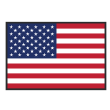
Take all the time you want.
There simply isn't a set of circumstances you could dream up, no matter how hard you try, to come up with a scenario where this group of Americans doesn't romp to the gold.
Don't bother clinging to the list of all the big names missing or the threat of injury or buying into the misguided idea that there's a nation on this list below that could take advantage of the proverbial "perfect storm nightmare game" where the Yanks can't make an outside shot.
Even without LeBron James, Stephen Curry, Russell Westbrook, James Harden, Anthony Davis, etc., there's simply too much length and defense and and now even size again on Mike Krzyzewski's squad for Team USA to struggle for long against anyone. A perfect 8-0 tournament would stretch the program's winning streak to a new all-time record of 76 wins in a row ... and that's exactly where the Americans will be on Aug. 21 after winning Coach K's swan song.
Yet we know you still feel that pull, that burn, to learn as much as you can about the rest of the world, even if the United States looks this invincible. So read on. Not unlike USA Basketball's depth chart ... it's all here.
2. SPAIN
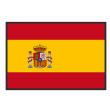
The committee (of one) is as guilty as anyone of writing the Spaniards off as a team whose time has passed, thanks largely to three unignorable truths:
A. We still can't believe Spain failed to even reach the medal round on home soil at the 2014 Worlds; B. Pau Gasol, Juan Carlos Navarro and Felipe Reyes are all 36 ... with Jose Calderon not far off at 34; C. Marc Gasol (foot) hasn't healed in time to join his older brother and the rest of his longtime amigos to try for a third successive trip to the gold-medal game after they lost the last two Olympic finals to the fancied Americans by a mere 11 and seven points, respectively.
Then you look at Spain's roster and realize that all but one of its 12 players in Rio -- Reyes -- either plays in the NBA or has played in the NBA or is headed to the NBA or, at worst, can be classified as an NBA draftee. Our pal @mellentuck has all the delicious roster details sorted for you nicely.
The best fivesome France can put on the floor might be more athletic, but the continuity and understanding Spain's core players have after so many years and battles together ensures they'll have Team USA's respect and attention.
Which is why Spain -- at least with us -- enters the tournament on a higher rung.
3. FRANCE
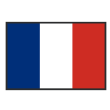
We repeat: No opponent in the tournament can put a stronger starting five on the floor to counter Team USA than the French: Tony Parker and Nando De Colo at guard, Nicolas Batum and Boris Diaw in the frontcourt and rim protector extraordinaire Rudy Gobert at center.
The coach putting everyone in those positions, furthermore, is the highly underrated Vincent Collet, who is Europe's finest NBA coaching prospect no one ever talks about.
Still ...
France lost some of our confidence with its failure to finish higher than third in EuroBasket 2015, which was not only on French soil (and hardwood) but came with the program at a peak in terms of talent and recent results. The likes of Joffrey Lauvergne, Thomas Heurtel and Mickael Gelabale are quality backups in the international game, but there isn't quite the depth here to cope with the inevitable fatigue France's main men will face given the load they're shouldering.
Bringing Orlando's Evan Fournier to Rio certainly could have helped there, so Monsieur Collet -- fond as we are of him -- can't duck the criticism sure to follow if that controversial-in-France decision backfires. And while Collet's crew might be more than an Evan Fournier away from upsetting the United States, who's to say Fournier wouldn't be the difference between silver and bronze in the next duel with Spain?
4. LITHUANIA
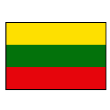
Guess who wasn't surprised at all by Lithuania's automatic qualification for these Olympics thanks to a runner-up finish at the 2015 EuroBasket that few international basketball mavens saw coming?
Answer: Anyone connected with USA Basketball.
Outside of Spain, no one consistently plays Team USA tougher than the Lithuanians, who won't be fielding as many familiar names as usual, but have given the Yanks too many scares over the years with their toughness and dogged execution to be overlooked should the countries meet in the knockout round in Rio.
Big man Jonas Valanciunas -- who, yes, still makes us of think of Charles Barkley calling him VAL-SU-ÉEE-NU-ON-SAUCE every time we see him -- is quite literally the centerpiece of this team, which always seems to play better if the game is bigger. And there are at least two more Lithuanians to watch.
Domantas Sabonis is not just the son of the legendary Arvydas Sabonis but also suddenly a key figure in Oklahoma City's post-Kevin Durant future after the Thunder acquired him along with Victor Oladipo in the Serge Ibaka trade. New York Knicks fans, meanwhile, will get an early glimpse of Mindaugas Kuzminskas, who sprinkles in some tangible shooting range and athleticism with his all-out effort.
5. SERBIA
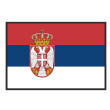
It doesn't take much daring to proclaim that Serbia won't be duplicating its runner-up finish from the 2014 World Cup in Spain. Any team that fields Denver's Nikola Jokic will be worth watching, but the 1-to-12 talent here tells you a reasonable expectation for these guys isn't in medal range.
This squad could have been really must-see had former San Antonio-turned-Detroit sensation Boban Marjanovic joined Jokic on Serbia's front line. But the incomparable Boban, sadly, didn't make himself available for national-team duty this summer, leaving Jokic to keep NBA Twitter engaged.
Serbia's other true star, of course, is still crafty lead guard Milos Teodosic, who is still also sadly no closer to making the jump to the NBA he has always resisted despite the urging of international hoop geeks like moi.
Bogdan Bogdanovic (whose NBA rights were recently dealt from Phoenix to Sacramento in a deal featuring June's No. 8 overall pick) and big man Miroslav Raduljica (who's known, as much as anything, for his James Harden-esque beard) also have some decent name recognition, but the second-place finish in the world's last major competition honestly flattered the Serbs.
Don't forget that they needed to win one of FIBA's three last-chance qualifying groups last month -- and duly routed Puerto Rico to oblige -- just for the right to join the United States in what was looking like a particularly weak Group A until Serbia and France were added.
6. ARGENTINA
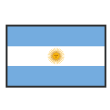
One more ride for Ginobili, Scola, Nocioni and Delfino ... mainstays for the Albiceleste that should be so familiar by now that last names surely suffice.
We've been lamenting since the 2014 World Cup in Spain what a shame it is that Argentina seems to have so little in the pipeline to try to carry on the proud tradition established by its Golden Generation, which won an unforgettable gold medal in Greece in 2004. Yet we must note that there is some new blood here with a couple of Texas-bound youngsters joining the vets: Dallas Mavericks signee Nicolas Brussino and San Antonio Spurs-bound Patricio Garino.
The sad reality, though, is that this figures to be the last major tournament for some time that Argentina can expect to be any sort of force.
The end is unavoidably at hand, more than a decade removed from Argentina's famous victories over the United States in the 2002 World Championships in Indianapolis and the 2004 Summer Games in Greece that played such a big part in triggering the broad changes Jerry Colangelo and Mike Krzyzewski would eventually implement with USA Basketball.
Scola is Argentina's flag-bearer at these Olympics and point guard Facundo Campazzo is always good for a Jason Williams-esque highlight or two, so perhaps we're getting sucked into the nostalgia of it all to have the Argentinians this high. A bronze medal would represent a tremendous (and frankly improbable) showing for a proud squad fighting a futile battle against Father Time.
7. BRAZIL
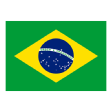
The hosts qualified automatically for the 12-team field, as all hosts do, but aren't exactly swimming in advantages as tournament tipoff draws near.
Much like Spain and Argentina, Brazil's most dependable players are largely in their twilight years: Nene, Leandro Barbosa, Marcelo Huertas and Alex Garcia. Worse yet: Two more ol' reliables -- Tiago Splitter and Anderson Varejao -- are unavailable because of injury.
Throw in the undeniable pressure Brazil will be facing to produce some sort of medal, which isn't quite soccer-level pressure but still a real thing for the national team because it'll be playing on Brazilian soil, and you can't call yourself a responsible committee if you don't ask this question: Is this really a top-6 team?
We weren't convinced.
Brazil did manage to eliminate hated Argentina in the Round of 16 of the 2014 FIBA World Cup, avenging painful losses to its most bitter rival in the two previous major tournaments, but the depth of Group B -- compared to what surrounds Team USA in Group A -- means that the hosts getting to the knockout phase is not assured. Sacrilegious as it sounds.
8. AUSTRALIA
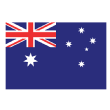
Even with more than half of its roster sporting NBA experience, Australia ranks as the What If team of these Games.
As in: What if Ben Simmons and Dante Exum were playing for the Aussies alongside the likes of Andrew Bogut, Matthew Dellavedova, Patty Mills, Joe Ingles and Aron Baynes?
How much fun would that be?
Of course, even without Simmons, you can count on the ever-gritty Aussies to make their Aug. 10 encounter with the United States in group play feel as frisky as any game the Yanks have, with Delly surely eager to harass Kyrie Irving from end to end. (There's also the wholly unexpected bonus of getting to see three Washington State alumni -- Klay Thompson, Baynes and Brock Motum -- share an Olympic floor.
Three guarantees from Team Australia: No one will play harder, it'll win at least one game you don't expect, and Bogut's unfiltered Twitter commentary about the shortcomings of the living conditions in the athletes' village will be a highlight of the tournament.
9. CROATIA
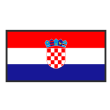
Long known for its penchant for self-destruction, Croatia is finally starting to rewrite its reputation, thanks to a promising crop of youngsters and a huge recent overtime victory over Italy -- in Italy -- to secure its Olympic berth in a win-or-go-home game.
This is the Mario & Dario Show now: Orlando's Mario Hezonja and Philadelphia's Dario Saric will team with top scoring threat Brooklyn's Bojan Bogdanovic to lead a squad of potential spoilers in Group B.
Depth is a problem at the moment -- as is point guard play -- but Mario and Dario have brought a new spirit and fight to a basketball nation that badly needed both.
Croatia also arrives in Rio, like France and their forever rivals from Serbia, freshly battle tested because it had to win the last-chance qualifier featuring Italy and Greece just to get here. Which can only help with sharpness.
The committee obviously would have been even more enthused about what's happening with the Croats if Dragan Bender, freshly drafted by the Phoenix Suns away from perennial Israeli power Maccabi Tel Aviv, was on the Olympic roster. But there's plenty to see here even without Bender ... especially for Sixers fans who have been waiting for a firsthand glimpse of Saric's talents for two years.
10. NIGERIA
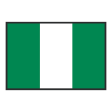
One of the factors that makes Group B so much tougher than Group A: Nigeria, as the presumed bottom-feeder of the pack, is a stronger team than Venezuela or China at the foot of the Americans' pool.
Perhaps even far stronger as it seeks to become the first African team in Olympic men's basketball history to advance out of group play and reach the final eight.
Nigeria might have been a real Rio sleeper if the Portland duo of Al-Farouq Aminu and Festus Ezeli didn't make late withdrawals from the squad, but its coach -- NBA D-League product Will Voigt -- can put length on the floor at every position and has more shooters at his disposal than we've seen in green in the past.
The focus here, as loyal readers surely already figured, will be on Josh Akognon, who had only a brief NBA stint in 2013 with the Dallas Mavericks but also happens to rank as the all-time leading scorer among two-year players in the history of Committee alma mater Cal State Fullerton. (Which, yes, is good for some bonus points with us.)
The backstory with more widespread appeal undoubtedly belongs to either veteran big man Ike Diogu (who, don't forget, was selected by Golden State with the ninth-overall pick in the 2005 draft) or Ben Uzoh (who's on the comeback trail after two years of scary health woes).
11. VENEZUELA
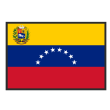
The one name you would have recognized on Venezuela's roster is gone; recent Brooklyn Nets signee Greivis Vasquez is still recovering from the ankle injury that cost him most of last season in Milwaukee.
Star status with the country Vegas pegs as the longest shot in the field was thus inherited by a 35-year-old named John Cox, whose father, Chubby, played briefly in the NBA ... and who can claim a certain Kobe Bean Bryant as his cousin.
The Venezuelans, though, are as plucky as any team in the field, having qualified for these Olympics without Vasquez ... and with zero NBAers in uniform compared to the eight Canada featured -- including Minnesota's Andrew Wiggins -- when the teams dueled for the right to go to Rio in September 2015.
Team USA found out just how scrappy coach Nestor Garcia's squad is in a recent exhibition in Chicago, where Venezuela slowed the game down as much as humanly possible to keep the margin closer (35 points) than Argentina, China or Nigeria did.
According to the latest FIBA rankings, Venezuela (No. 22 worldwide) is the weakest team in Group A. Yet the committee is actually rather confident that Venezuela will not finish last in the group. The belief here is that China is headed for the basement, with France, Serbia and Australia also bound to be annoyed by the defense, togetherness and, yes, pluck that comes from Garcia's gang.
12. CHINA

It sounds reasonable to presume that two recent exhibitions in California against the United States, followed by Saturday's Group A Olympic opener against the Yanks, could prove beneficial in terms of toughening China up for its four remaining group games.
But that's not how it'll play out.
The real-life benefit in this case figures to be negligible, because this is a younger-than-usual Chinese team with little proven help in support of former lottery pick Yi Jianlian, who's the only certifiable NBA talent on the current squad.
Point guard Zhao Jiwei has a little flair in his game and a willingness to try some stuff that can lead to a moment or two of fun -- and young big men Zhou Qi (Houston at No. 43) and Wang Zhelin (Memphis at No. 57) showed enough promise to merit second-round selection in the June draft -- but China's medal was winning the game it had to win against the Andray Blatche-led Philippines to clinch an Olympic berth in a qualifying showdown pitting Asia's two hoops-obsessed nations.
China's realistic goal in Rio is gaining experience that leads to tangible progress by the time it hosts the next FIBA World Cup in 2019.
